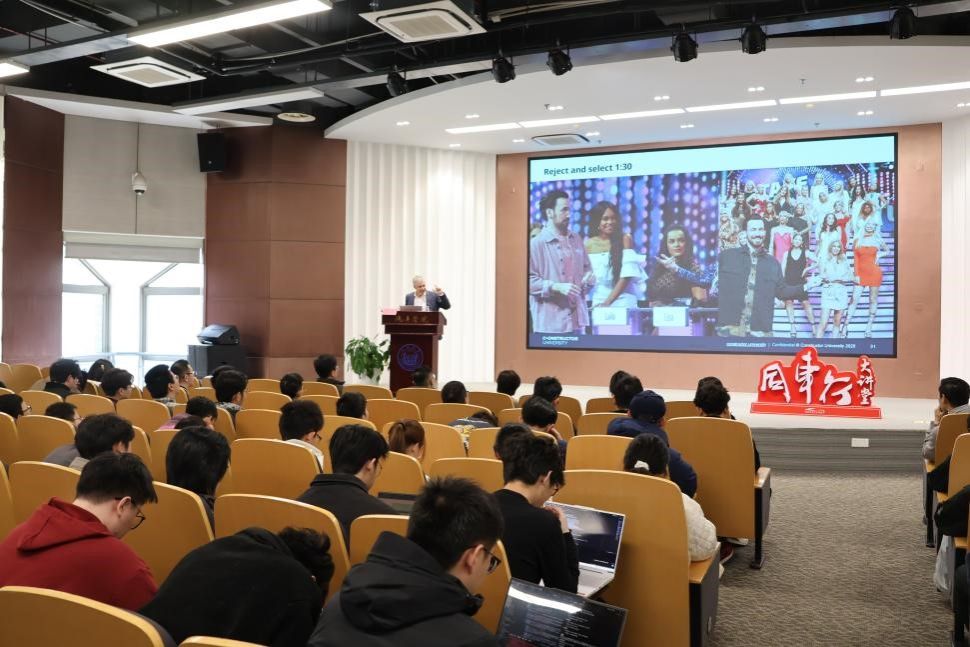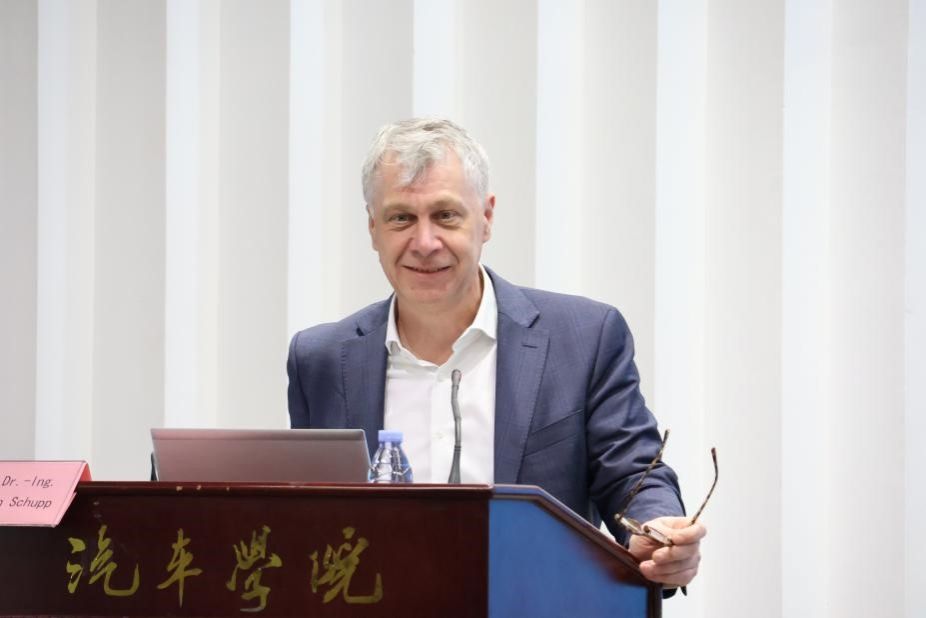On March 18, the 118th Lecture Hall of “Tongji Auto” was successfully held in the reporting hall of New Energy Automotive Engineering Center. Prof. Dr.-Ing. Florian Schupp, Senior Vice President of Purchasing and Supplier Management E-Mobility, Motor and Motor Components at the Schaeffler Group, and Adjunct Professor for Logistics at the Constructor University Bremen, gave a wonderful lecture titled “Trends and Strategies in Automotive Purchasing and Supply Management”. The lecture was moderated by Prof. Wu Xudong, Vice Dean of School of Automotive Studies.

The lecture centered on various aspects of purchasing and supply management, and Prof. Florian Schupp began by discussing the concept of “purchasing” in depth and demonstrating the different ways in which it is understood. He emphasized that purchasing is not only about buying products, but also involves complex processes such as negotiating with suppliers, selecting the right suppliers, optimizing costs and improving product quality. The core objective of purchasing was to enhance the competitiveness of an enterprise by optimizing costs, improving quality and managing the supply chain effectively.
Prof. Florian Schupp also presented the influence of behavioral psychology on purchasing decisions, suggesting the role of psychological phenomena such as the Zeigarnik effect in negotiations and the possible influence of high testosterone levels in men on their preference for high-priced products. He pointed out that these psychological factors deserve special attention and reasonable application in actual purchasing negotiations. In addition, the lecture also discussed in depth how to achieve cost optimization and flexible supply chain management by cooperating with multiple suppliers and choosing the best purchasing channels.

As technology continues to advance, intelligent manufacturing and digital supply chains have gradually become new trends in purchasing management. Prof. Florian Schupp mentioned that through technologies such as AI, IoT and Big Data, companies can manage their supply chains more efficiently, achieve real-time inventory tracking and demand forecasting, and reduce logistics costs, while improving supply chain transparency and flexibility. He also emphasized the increasing impact of sustainability on purchasing decisions, and that companies' future purchasing strategies should not only focus on price, but also consider suppliers' environmental performance and carbon emissions levels.
Finally, Prof. Florian Schupp looked at the future development in the field of purchasing, especially how to develop effective purchasing strategies and enhance the competitiveness of companies in the context of globalization in combination with intelligent manufacturing and digital supply chain. The lecture also focused on how to cope with the rapid changes in the Chinese market and optimize global purchasing decisions through flexible supply chain strategies.
Following the lecture, Wu Xudong, Vice Dean of School of Automotive Studies presented a commemorative photo frame to Prof. Florian Schupp.